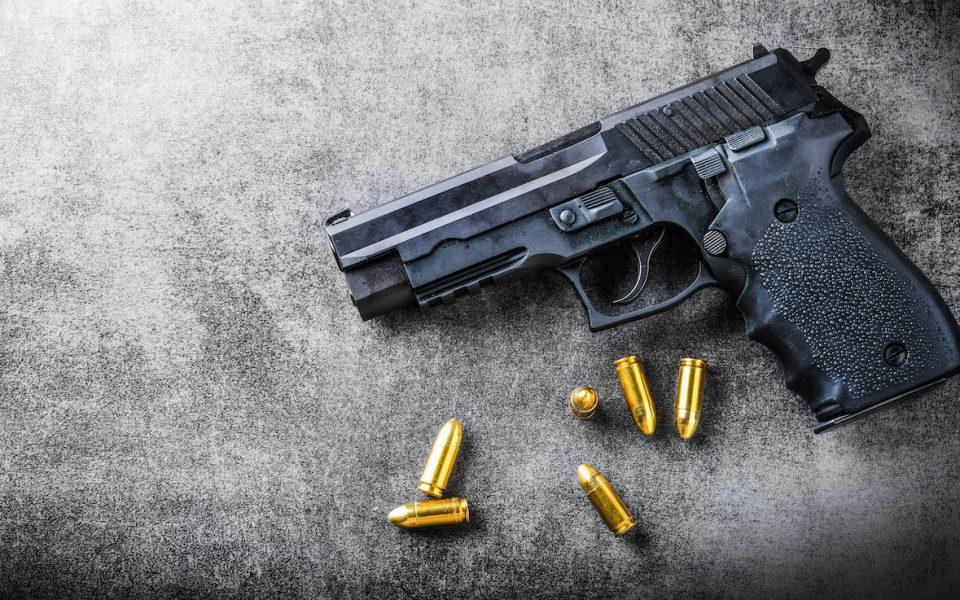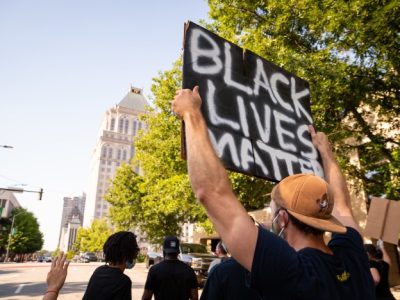
by John Railey
The bullets tore through their Winston-Salem apartment one night last fall. A young son heard rapid rifle fire (yes, he already knows what that sounds like), then pushed his mother to the floor and lay down beside her.
“The whole apartment shook,” the mother recently told this columnist. “One bullet came through my living room and the other went through the kitchen. If I had been standing, I would have gotten hit.”
The scared family soon moved out, taking refuge in a relative’s home, disrupting work and study. As far as gun violence goes, they were one of the lucky families.
Last year, there were a record 50 homicides in Forsyth County and Winston-Salem, with 44 of those crimes occurring in the city and most involving guns. There were more than a hundred assaults involving guns. Many of the victims were Black and young.
The only good thing about this nightmare is a growing coalition of community organizations is determined to change things.
“We no longer need white allies,” community activist Micha James said at a recent meeting. “We need white accomplices.” She explained that it’s past time for the powers-to-be to join them in the fight. More money is needed for the fight. And more people need to join the front lines of the battle, speaking out and helping with mentoring.
It’s a matter of human survival. And it’s a matter of economic survival. For families living in East Winston and other areas of the city, the stress of gun violence inhibits their ability to do their best at work and school. “You cannot think about anything you want to do unless you feel safe,” said Alvin Atkinson, the associate director of Winston-Salem State University’s Center for the Study of Economic Mobility, a participant in the community fight against violence.
If more of us don’t join in this effort, it will affect us all in ways larger than just the black eye the violence puts on Winston-Salem’s publicity efforts.
Those points were underscored on Jan. 11 as Knollwood Baptist Church made the issue one of its Faith in the City Forums, headlining it “Building Public Will for Equitable Schools Now: Violence IS an Equity Issue.”
“We had to hear the truth,” said Atkinson, who moderated the ZOOM panel. As he noted, you can’t isolate violence because it affects so many other key issues, including education, and the pandemic has aggravated those issues.
Panelist Effrainguan Muhammad of the group 10K Fearless said: “We have to see this as a public-health issue. It’s not just gun violence.” He said the issue includes a girl going to bed scared, a mother fearful of losing her home and teachers tired and underpaid.
The Sept. 1 crime at Mount Tabor High School, in which one 15-year-old Black student is charged with fatally shooting another 15-year-old Black student, brought the issue of gun violence home for many who’d had the luxury of never considering it.
“Sept. 1 was not a school shooting,” Micha James said at the forum. “It was a shooting that happened in a school. It woke up some white folks and some oblivious black folks to what’s been going on.”
As panelist Nakida McDaniel of the Women’s Gun Violence Prevention Coalition said, “Community violence spills over into schools, and if we don’t get a hold of it, it can potentially get worse.”
More armed officers in school is not the answer, James said. Instead, forum participants said that leaders need to address inequities in education and housing that lead to the violence, and understand why some youth feel pressured to become violent. The powers-that-be need to listen to the youth and the grassroots groups trying to help them, panelists said.
“Hopelessness is the mother of violence,” Muhammad said. “The people that are on the ground, in the dirt, are never heard.”
David Villada of the organization New Life/Nueva Vida said: “These kids are misunderstood and judged because they are in pain.”
As she canvassed neighborhoods as a community activist, McDaniel remembered seeing blood on the ground where someone had been killed the night before.
“I felt defeated,” she said. “We’re kind of frustrated. I’m just going to be honest: It’s the same old song in Winston-Salem.”
What’s needed, she said, is a coordinated effort to reduce gun violence involving parents, grandparents, “aunties” and uncles. “We need love,” she said. “And nobody can’t love on us like we can.”
Muhammad and Villada said their groups have been effective by working directly with at-risk youth, including gang members. The youth are “not bad,” Muhammad said. “They’ve just been put in bad situations.”
Other strides are being made as well. School Superintendent Tricia McManus, who was in the forum audience, has emphasized efforts to fight violence. Last month, she was instrumental in persuading the school board to approve a $1.4 million contract with the Action4Equity group to supply mentors to 200 students at Paisley IB Magnet School, Philo-Hill Middle School, and Parkland and Reynolds high schools. The funding is from COVID relief money.
Panelists said it’s crucial that their overall anti-violence effort succeed. “If we miss this opportunity, we’ll never get it back again… we can remain in the darkness, or we can choose to go into the light of a new day,” Muhammad said.
Atkinson said: “One person at a time. That’s all it takes.”
John Railey, [email protected], is the writer-in-residence for CSEM, wssu.edu/csem.
Join the First Amendment Society, a membership that goes directly to funding TCB‘s newsroom.
We believe that reporting can save the world.
The TCB First Amendment Society recognizes the vital role of a free, unfettered press with a bundling of local experiences designed to build community, and unique engagements with our newsroom that will help you understand, and shape, local journalism’s critical role in uplifting the people in our cities.
All revenue goes directly into the newsroom as reporters’ salaries and freelance commissions.





Leave a Reply